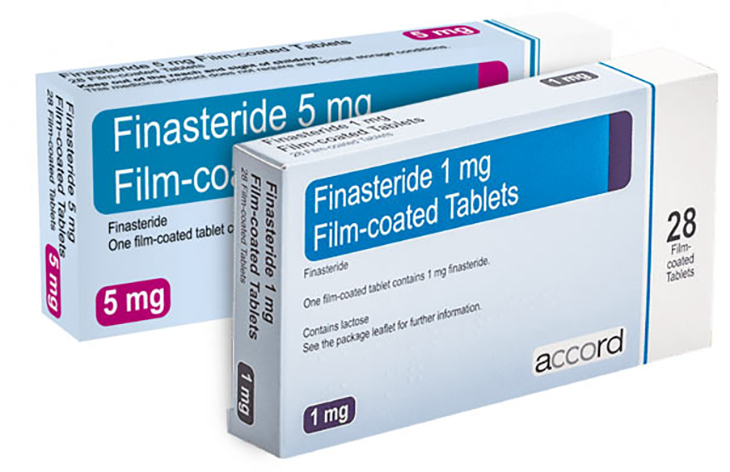
A recent study found that men who took finasteride (marketed as Propecia and Proscar) had an average cholesterol level that was 30 points lower compared to those who were not on the medication. This new research adds to existing evidence indicating that finasteride may enhance cardiac function.
Important Points from the Research:
- Recent findings propose that finasteride, a medication commonly prescribed for male pattern baldness and enlarged prostate, could potentially lower cholesterol levels and decrease the risk of heart disease.
- Finasteride operates by inhibiting the production of the active form of testosterone.
- Prior research examining the influence of testosterone on heart health has yielded conflicting results.
A medication commonly prescribed to address male pattern baldness and enlarged prostate, finasteride (marketed as Propecia and Proscar), has emerged with an unexpected advantage in promoting heart health, potentially benefiting millions worldwide.
Research conducted at the University of Illinois Urbana-Champaign (UIUC) has uncovered compelling evidence suggesting that finasteride could play a significant role in reducing cholesterol levels and mitigating the overall risk of cardiovascular disease.
The findings, recently published in the Journal of Lipid Research, shed light on the correlation between finasteride usage and lowered cholesterol levels among men participating in the National Health and Nutrition Examination Survey (NHANES) spanning from 2009 to 2016.
Moreover, experiments conducted on mice have demonstrated promising outcomes, indicating that finasteride not only diminishes total plasma cholesterol but also slows down the progression of atherosclerosis and mitigates inflammation in the liver.
This research underscores the potential multifaceted benefits of finasteride beyond its primary indications, paving the way for further exploration of its cardiovascular protective effects.
“One of the strengths of our paper is that we found similar results in both people and mice,” the lead study author, Jaume Amengual, PhD, said. He is an assistant professor in the department of food science and human nutrition at UIUC’s College of Agricultural, Consumer, and Environmental Sciences. “Based on survey responses, men taking finasteride had cholesterol levels that were 30 points lower than men not taking the drug. More or less, the cholesterol reduction in mice was at a similar degree.”
The most recent study reinforces earlier findings indicating that finasteride might enhance cardiac function.
Mice and Men Both Witnessed Benefits
In this investigation, the researchers utilized data obtained from 4,800 participants in a survey. Among these respondents, 155 individuals, all males aged over 50, reported the usage of finasteride. While the precise dosage and duration of finasteride intake among the survey participants remained unclear, it was presumed that they typically consumed daily doses of either 1 milligram (mg) for combating hair loss or 5 mg for addressing an enlarged prostate condition.
The experimental phase involving mice was conducted by Dr. Amengual and his colleagues. Male mice, genetically predisposed to atherosclerosis, were subjected to varying concentrations of finasteride. Simultaneously, they were fed a diet rich in fats and cholesterol, mimicking the typical Western dietary pattern, for a duration of 12 weeks.
Upon completion of the three-month period, the researchers noted significant observations. Mice administered a high dosage of finasteride exhibited notable reductions in cholesterol levels both within their plasma and arterial walls. Furthermore, analyses indicated a decrease in lipid concentrations and inflammatory markers within the liver tissue of these mice.
How Finasteride Works
Finasteride operates by inhibiting a specific protein found in both hair follicles and the prostate gland, which is responsible for activating the sex hormone testosterone. This mechanism underlies its effectiveness in treating conditions such as male pattern baldness and benign prostatic hyperplasia.
Dr. Amengual has proposed a hypothesis suggesting that testosterone may exert a significant influence on the progression of atherosclerosis, a condition characterized by the accumulation of plaque on artery walls. Notably, men tend to develop this cardiovascular disease at an earlier stage of life compared to women.
According to Dr. David J. Maron, the director of preventive cardiology at Stanford University School of Medicine, if the results observed in the mouse model can be extrapolated to humans, they indicate that finasteride’s inhibition of testosterone’s active form could lead to several beneficial effects. These include reductions in cholesterol levels, mitigation of inflammation, and decreased plaque buildup within the arteries.
Nevertheless, Dr. Maron emphasizes the complexity of testosterone’s role in the pathogenesis of heart disease, noting that our understanding of this relationship remains incomplete.
“There is conflicting evidence that either finds testosterone to be a good actor or a bad one,” Dr. Maron said. He was not part of the new study made.
For example, although a recent study suggests that testosterone might pose risks to heart health, a study from 2017 found a strong link between low testosterone levels and adverse cardiovascular outcomes.
The Research Is of Potentially ‘Great Significance’ but Has Limitations
Brian Choi, MD, a cardiologist and professor of medicine and radiology at George Washington University in Washington, DC, emphasizes the necessity for controlled trials to determine if finasteride might offer cardiovascular advantages. He suggests conducting trials wherein men are randomly assigned to either finasteride or a placebo group and then monitored for occurrences of heart attacks and other cardiovascular events.
“I think it’s a leap too far right now to say that finasteride is definitely protective of the heart,” Dr. Choi said. He also was not part of the study conducted. “At this point, I would not tell a patient to take finasteride to lower cardiovascular risk. This is something we need to study more.”
Maron expressed enthusiasm about the findings, noting their potential significance, yet cautioned about uncertainties in extrapolating from mouse studies to humans. Additionally, the survey data collected from men lacked details regarding testosterone levels, as well as information on the duration and frequency of finasteride usage.
Additional Research May Look Into Women and Trans Individuals
Amengual suggests that future research could examine the impact of the medication on women and transgender individuals.
“Transgender people are also at a higher risk of cardiovascular diseases,” he said. “So this drug could have a potential beneficial effect to prevent cardiovascular disease not only in cis men, but also in transgender individuals.”



